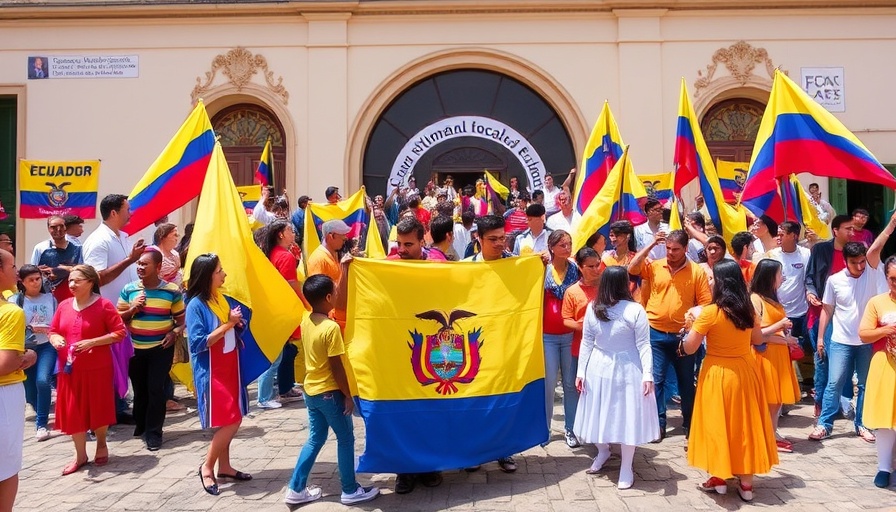
Celebrating Ecuador: A Look into National Day Significance
Ecuador National Day, celebrated on August 10th, commemorates the country's declaration of independence from Spanish colonial rule in 1809. This significant date marks the beginning of Ecuador's journey towards sovereignty and democratic governance. As we reflect on this national celebration, it is essential to explore the historical context that led to Ecuador's independence and the modern implications for its citizens today.
The Historical Context of Ecuadorian Independence
In the early 19th century, the Spanish Empire was facing numerous challenges across its colonies in Latin America. The Enlightenment ideals of liberty and equality began to seep into the consciousness of the Ecuadorian people, leading to a desire for self-governance and sovereignty. On August 10, 1809, the first voices of rebellion emerged in Quito, resulting in a temporary government formation. This day symbolizes the hope and aspirations of Ecuadorians for a future free from colonial oppression.
A Modern Interpretation of Ecuador National Day
Today, August 10th is not just a day of remembrance; it serves as a platform for recognizing the social, political, and economic advancements that Ecuador has made since independence. Citizens gather for colorful parades, cultural events, and political discussions, highlighting issues such as healthcare, education, and civil rights. It reflects the ongoing journey of national identity and pride for Ecuadorians, uniting the nation in celebration while acknowledging ongoing challenges.
Connecting National Day to Current Events in Ecuador
This year, as Ecuador celebrates its National Day, the country faces various pressing issues, including political stability and economic recovery. Just as the declaration of independence in 1809 brought hope, citizens today are calling for political leaders to prioritize reforms for a stronger economy and enhanced national security. The reflections on national history resonate deeply with current national news, as the populace seeks to define their path forward amidst contemporary issues relating to immigration, crime rates, and public health.
Economic Freedom and Challenges
Ecuador's journey towards economic independence has had its ups and downs. From the agricultural exports of the past to modern discussions around inflation and trade policy, the economic landscape has evolved significantly. Economic freedom is still a concern, as many Ecuadorians face challenges stemming from global economic fluctuations and domestic policies. As with many nations today, the balance between securing economic independence and fostering international relations remains a critical issue.
Cultural Tapestry of Ecuadorian Society
Ecuador’s rich cultural heritage is a testament to its diverse indigenous populations, reflecting a tapestry woven through history and traditions. The National Day festivities often showcase traditional Ecuadorian dances, music, and cuisine, reminding both citizens and visitors alike of the nation’s vibrant identity. Initiatives to preserve cultural heritage, alongside discussions of indigenous rights and representation in government, are crucial as Ecuador moves forward into a future that embraces both its past and its aspirations.
Call to Action: Engage with Ecuador's Journey
The annual celebration of Ecuador National Day invites individuals from all over to engage with the country's rich history and complex present. For those in the United States, understanding the implications of events like Ecuador's Day of Independence fosters a broader understanding of Latin American dynamics in current national news and helps to build meaningful dialogues on migration, civil rights, and cultural exchange. Take a moment to learn and celebrate the interconnectedness of our nations and their histories.
 Add Element
Add Element  Add Row
Add Row 



Write A Comment